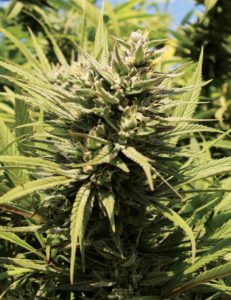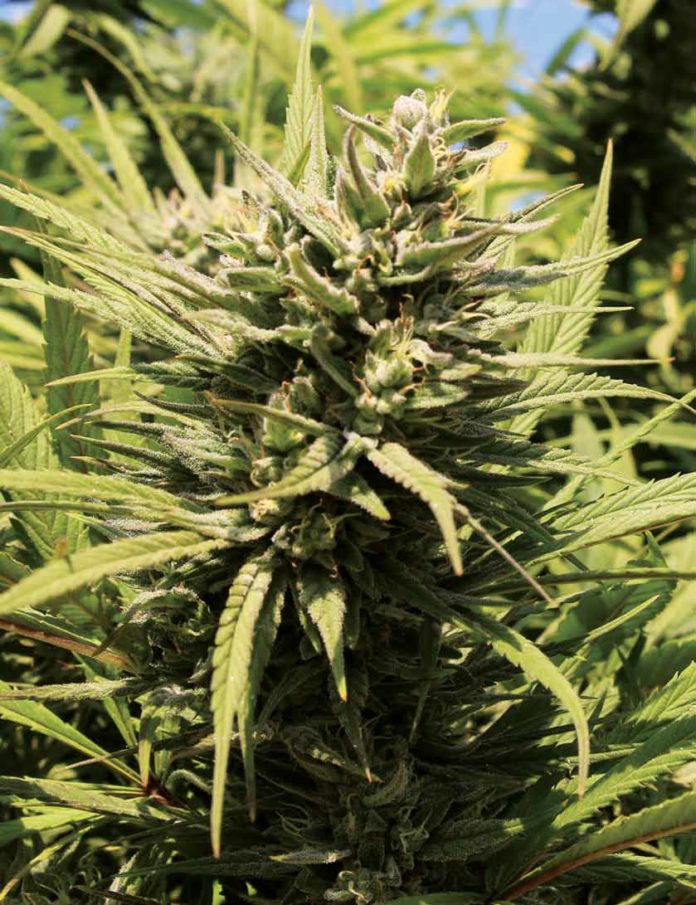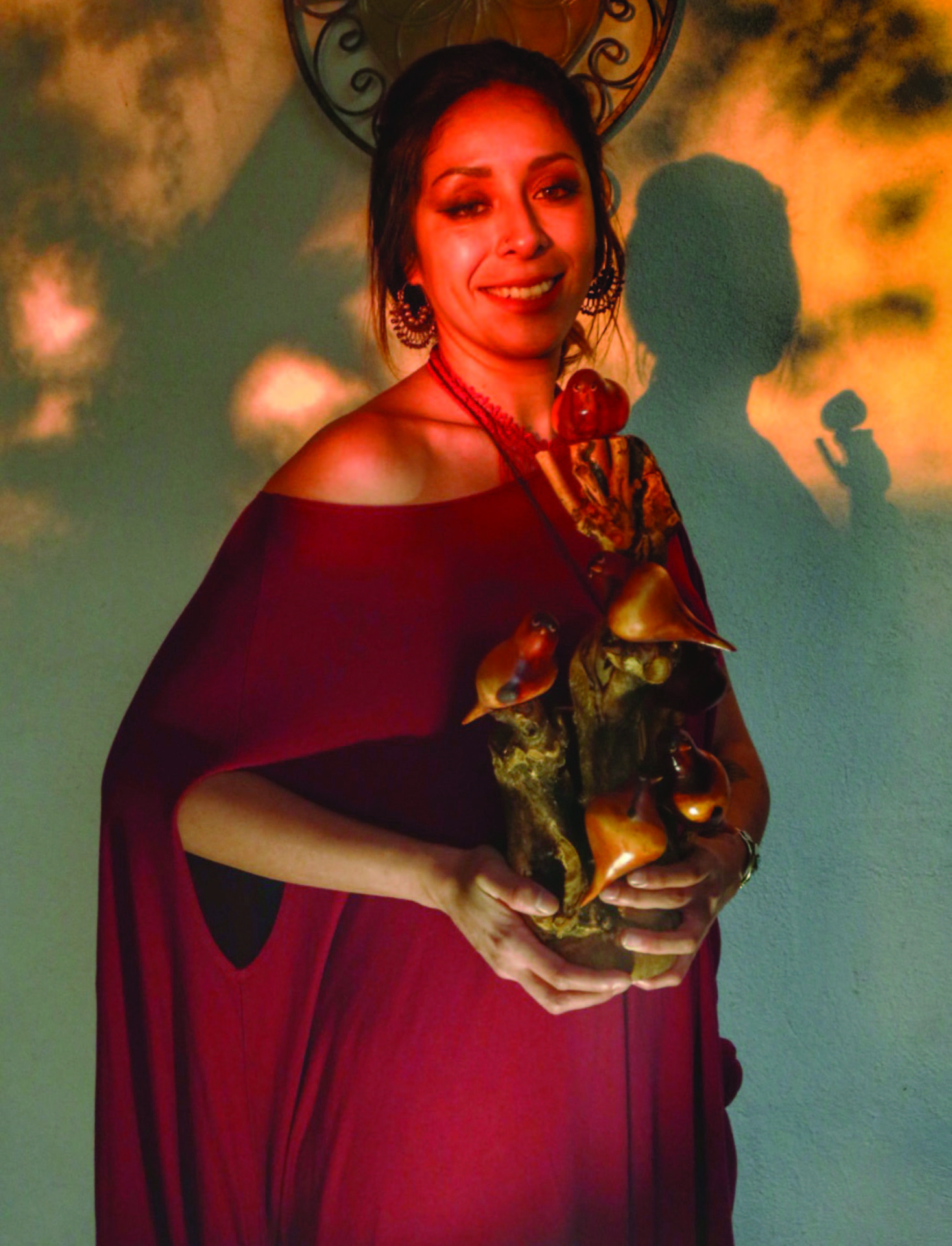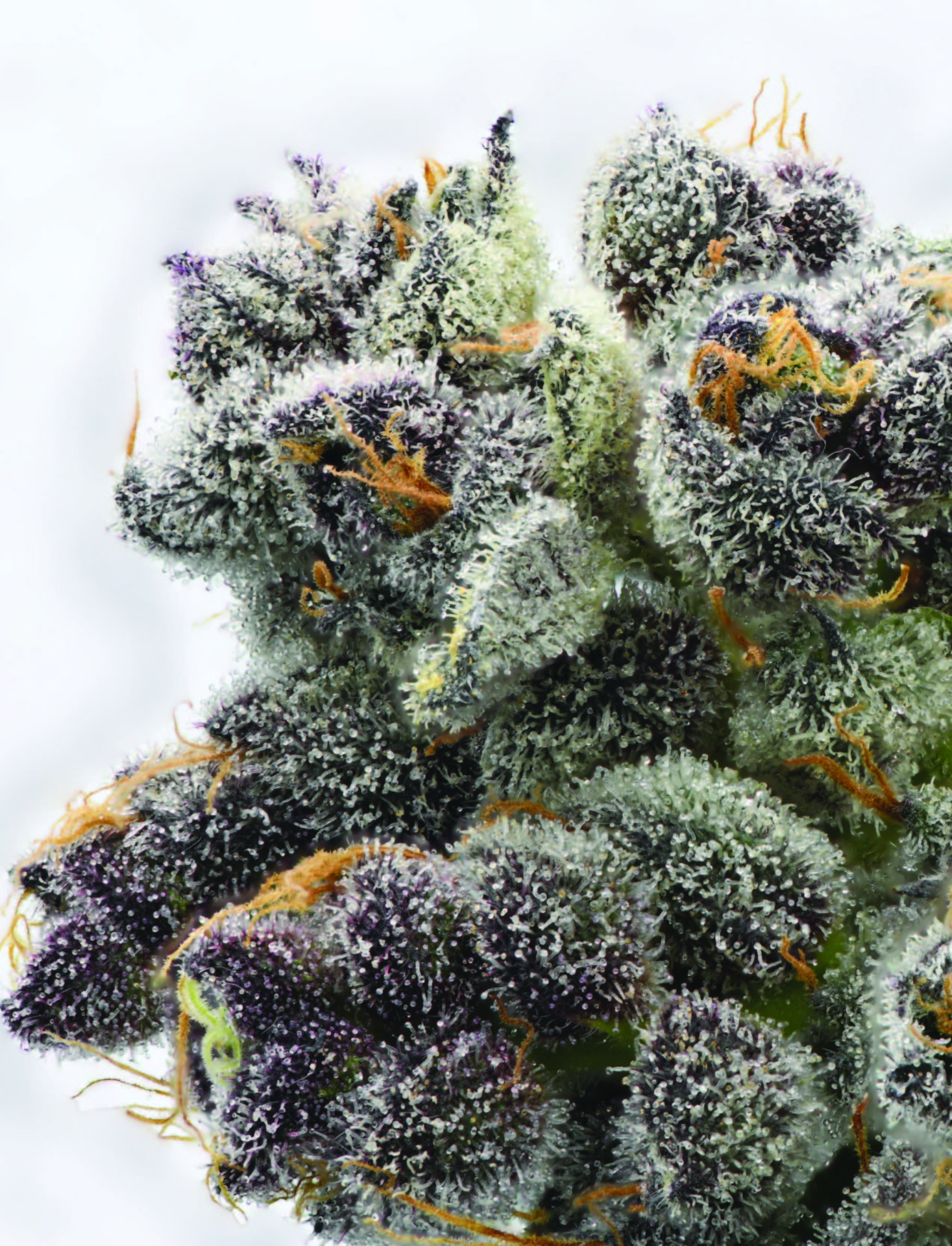
An afternoon with Mandy
Mandy Martin founded Compassionate Distributors in 2010, with her
late husband James, and was the first dispensary owner to open
multiple storefronts. A lawyer by training, she is now the owner,
and operator of 4 dispensaries located throughout southern New Mexico.
Mandy, and her talented staff have established a successful, licensed cannabis
company while navigating perplexing state, and federal regulations.
Mandy has had an amazing journey as well as suffered personal tragedy
to become the knowledgeable medical marijuana producer she is today.
I had a chance to spend an afternoon with Mandy recently, and we discussed
the past, present, and future of Compassionate Distributors. This is
what she had to say;
By Jody Flanigan
Mandy Martin founded Compassionate Distributors in 2010, with her
late husband James, and was the first dispensary owner to open
multiple storefronts. A lawyer by training, she is now the owner,
and operator of 4 dispensaries located throughout southern New Mexico.
Mandy, and her talented staff have established a successful, licensed cannabis
company while navigating perplexing state, and federal regulations.
Mandy has had an amazing journey as well as suffered personal tragedy
to become the knowledgeable medical marijuana producer she is today.
I had a chance to spend an afternoon with Mandy recently, and we discussed
the past, present, and future of Compassionate Distributors. This is
what she had to say;Jody: “How did you get into the marijuana
business?”
Mandy: “In 2007 my husband James fell off
of a balcony in Ruidoso while working as a
contractor in construction. It wasn’t his fault.
Someone had left a screw out of the railing
on a balcony. He was showing the home
owner some tilework when the railing let go.
James fell two stories, and shattered both of
his heels. He was in a wheelchair for 6 months.
Of course, the doctors prescribed him opiates,
because one of the most destructive, and
painful injuries anyone can face is having their
heels shattered. James became tired, and
cranky with the meds(opiates) over time. He
really was not himself. So, he started smoking
marijuana, and over time, was able to completely
stop taking opiates. He began to act
like his old self again. At that point, I started
to feel that there was something more to this
plant other than just your stereotypical drug
to get high on. When James got back to what
he used to be before the opioids completely,
I was convinced. But at the time, I was kind of
supporting the family as a lawyer. The economy
was crashing, and James had trouble finding work as a contractor. I was afraid that
I may lose my law license if I got tangled up in
any kind of prosecution for being involved in a
cannabis program. People in California, and
Colorado were still being charged by the feds.
I had a family with young children, and was
concerned about prosecution if we started a
cannabis dispensary. In October 2009, Deputy
Attorney General David W. Ogden released
the “Ogden Memo” stating that prosecuting
medical marijuana sales in states that have
legalized it would be a low priority of law
enforcement and federal prosecutors due to
limited resources. Basically, the feds were not
going to waste resources arresting marijuana
participants in state run programs. This memo
helped to assure me that the feds wouldn’t
prosecute us, and take everything we own.
Hopefully not, at least. So, when James asked
me if I would be willing to write out the plan
for a medical marijuana dispensary, I agreed
because I believed that medical cannabis
could help people. I had seen it with my own
eyes in him. The application fee was $100, so
everyone was applying. There were a lot of
applications, but they really weren’t what the
Department of Health was looking for. I think
that is where we got lucky, because that is
part of my trade, I do paperwork. I stayed on
it, and was persistent. We got our license right
under the Richardson administration two days
before Susanna Martinez took office.”
Jody: “Wow! Where was your company
created?”
Mandy: “Originally we were in Ruidoso, where
we had an indoor grow in Lincoln county. We
had initially planned to grow 99 plants, but
right after we got our license, the DOH (Department
of Health) increased the plant count
from 99 to 150 because they added PTSD
(Post Traumatic Stress Disorder) as a qualifying
condition. We grew hydroponically out of
that indoor facility for the longest time. Both
James, and I were still working regular jobs.
James in construction, and I was at the law
office. All of my paychecks went to buy nutrients,
and I maxed out my credit cards just to
make it to the first harvest. So, finally when the
harvest came in, we opened the store in Ruidoso
around October, 2011. None of us were
getting paid at first, because only about 100
people were signed up for the program in our
area. We grew the program down there by
talking to people, and letting them know how
to sign up. When I opened, I just started calling
potential patients, to inform them about the
program. We were also working with Robert
from Peace in Albuquerque, to help patients
sign up for the program.”
Jody: “So, things started slow?”
Mandy: “Eventually more people started signing
up for the program, but it was small at first.
Around 2000 patients state wide. I think there
was only about 80 patients in Lincoln county,
and maybe 50 in Roswell at that time. I was
actually the first storefront dispensary. In May
2011, we (Other dispensary owners in the state)
had our first producers meeting, and it was
great to meet everybody. Everyone was learning
from each other, and during the meeting
someone asked me “You have a storefront?” I
said yeah, doesn’t everyone else. Then I asked
“You do deliveries?” It was a very fun and
positive experience. When I originally wrote
our application, I included a storefront in it,
because I just thought that is what dispensary
owners did. We got approved, so we opened
a store. Thanks to that meeting, everyone else
started applying for (dispensary) storefronts,
and I started making deliveries”
Jody: “How were you able to open
multiple stores?”
Mandy: “We started offering deliveries. When
we first started, we were still small, and only
open 4 days a week, Friday, Saturday, Sunday,
and Monday. I was one of the first in our company
to start driving the deliveries. I was driving
down to Roswell, Carlsbad, and Alamogordo
when I wasn’t in the law office. We eventually
opened full time, and I quit my job. There was
only 4 or 5 of us at first, so I drove to Roswell,
and someone else usually drove to Carlsbad,
and Alamogordo after that. I grew up in Roswell,
but it was a really long drive. I am from
Roswell, and really saw a need for patients
there. I wanted to open another store to help
fill this need, but no one had been allowed a
2nd store before. So, the state sent out an RFP
(Request for Proposal) to all the producers in
the state saying that if they wanted to open
a store down in Roswell, they would have to
close the store they currently had, and move.
No one wanted to do that, but they had to be
given the opportunity to move, just to be fair.
Since no one responded to the RFP, I applied
for the location. After some City Council issues,
I opened a 2nd store in Roswell in 2014. It
took a while before the DOH started letting the
producers open multiple stores, but it eventually
happened. Once other producers began
opening multiple locations, I applied for, and
opened the Carlsbad store to satisfy the needs
of my patients there. I opened the Alamogordo
store later on for the same reasons. We had
been delivering in those areas for some time,
so it made sense. When
I prepared deliveries, I
was forced to prepackage
customer’s orders.
Patients like to see, and
smell what they are
buying. I like to take the
cannabis out of the jar for the patient, and
weigh their order in front of them. That way the
client knows exactly what they are getting.
Opening stores in these areas allowed patients
to become more educated and have a better
understanding as to what they are really buying.”
Jody: “The New Mexico Department of Health
had a 450-plant limit in the past, which made
it difficult for producers to keep up with patient
demand. On March 4, 2019, through an emergency
rule change, the DOH raised that limit
to 2500 plants that producers are now able to
grow. Do you feel that the cannabis supply will
now be able to keep up with patient demand
under these new guidelines?”
Mandy: “Yeah, that was a Shocker! I believe it
is going to flood the market. Our house is separate,
and closed off, but I live on a 9 – acre secure
farm. We are in a unique position. I will be
able to grow all 2500. I am kind of the hillbilly of
the program, so we build most of my own stuff.
We bend our own metal, and pull all our own
plastics. We already have plants started, and
ready. We have all been going into overtime
getting them into grow bags. By mid-May, I will
have plants everywhere on the farm.
Jody: “What do you think sets Compassionate
Distributors apart from the competition?”
Mandy: “I will definitely have competitive
pricing, but the number one thing I think about
when it comes to Compassionate Distributors is
our customer service. No one likes the feeling
of going to a sterile doctor’s office, so I design
and furnish all my stores with this in mind. I
look for very patient friendly, inviting items like
leather couches, comfortable chairs, artwork,
water features, and synthetic grass. I want it
to feel relaxing, almost like you are going to
a close friend’s house. We make it a point to
acknowledge customers
when they come in, and I
keep marijuana literature
around like Kurple magazine.
If we get a little busy,
everyone has a nice place
to hang out. I want to
create an environment where every patient
feels like they can talk to someone, and get
their questions answered. Most people want
someone to listen to them. That is what we are
here for, not to get you in and out. The older
generations are some of our main clients in
the market right now. They are very interested
in medical marijuana, but most are not sure
what to do, or how to use it. We do our best
to help them discover what can work best for
them. Our staff members really take the time
to get to know, and relate to patients’ issues.
We have a return policy too. If you do not like
one of our products, such as an edible, bring
it back, and we will either refund your money
or trade it out. All I ask is, if you buy 10 grams of
flower, and bring me back 5 grams, please do
not ask for all 10 back.
Jody: “Sounds fair. What products does Compassionate
Distributors offer?
Mandy: “We offer concentrates, topicals, shatters, waxes, pens, disposable cartages,
refillable cartages, baked goods, chocolates,
and of course our flower, hash, and kief hash.
Things can get really technical in the lab during
the extraction process. We grow flower,
and produce kief at the farm, then send it out
to have our shatters, waxes, and edibles produced.
We work with some great companies
like Mountain Top Extracts, Herbal Edibles, and
Bang, which has been with us from day one.
These manufacturers produce amazing
products.”
Jody: “So, you mainly grow outdoors?”
Mandy: “We used to use a lot of clones when
we grew indoors, but now our main crop is
grown from seed outdoors on the farm. I really
believe that soil grown cannabis is better. I
order all the seeds myself, and get my soil from
Mendocino in Colorado. The plants grow bigger,
heartier, and are much more robust. We
had one that was over 20 feet tall. The terpene
profile is also improved with outdoor grows in
my opinion. The flavor, and smells are amazing.
The plant is happier and healthier. Best of
all, it is cheaper. I get free light from the sun,
and it is easier to be organic.
Jody: “Being from a legal background did
you have much cannabis growing
experience at first?”
Mandy: “At first, James took care of the plants,
and would show me things. Over time I would
read the directions on the nutrient bottles,
and started experimenting on my own. I went
through some trials and error. After growing
so many thousands of marijuana plants you
will learn from your mistakes. I loved to garden
when I was young. My dad had a garden, and
we always grew vegetables together. I have
always been very hands on. From the very
beginning, I helped with the grow, the trimming,
and ran the store. I think that has helped
me being so involved like that. We were broke,
so you do it yourself. I learned all the facets of
the company that way. When our Budtenders,
or growers are having a problem, I know how
to help, because I have been there. We are a
very family-oriented company.”
Jody: “Nice. What strains do you grow, and
how do you choose them?
Mandy: “In Albuquerque there are a lot of
dispensaries, and everyone seems to focus
on around 10 different strains. They get really
good at those strains. For instance, if you want
a great Blueberry, you can go to a dispensary
that specializes in Blueberry, and so forth. That
is how I understand it, but I could be wrong. I
on the other hand usually grow over 100 different
strains every year, but I plan on having
about 200 different strains out this year. When
introducing 2 new strains every week, you’ve
got to have at least a 100 in rotation. Growing
that many strains can create huge growing
challenges. For example, some strains do
not like that much water, some like a lot of
water, some do not like certain nutrients, and
with some strains the grasshoppers just to love
to eat those. It keeps us busy. I like the more
classic strains, and I listen to what the market
enjoys. If you put a White Widow, or a Sour
diesel, or a Gorilla Glue out there, patients will
respond. Clients seem to remember and identify
with those strains. That is not because of
my marketing, but because of what has been
popular throughout the years. Terpene and
cannabinoid profiles play a big role with a lot
of strains too. Norstar and Granddaddy Purps
are very popular, mainly because everyone
loves the purple flower. Purple strains seem to
have a very distinct effect on patients. Norstar
purple strains work well for pain, appetite,
sleep issues, and are quite beautiful.”
Jody: “Can you explain Compassionate Distributor’s
mission statement to me?”
Mandy: “It has always been to help people,
and to help patients. I strive to provide, and
educate people with a treatment option that
is an alternative to traditional pharmaceuticals.
Pharmaceuticals can be useful. When
James was hurt very bad, he needed the
opioids for pain. People with certain conditions
may have to rely on traditional pharmaceuticals,
but on a day to day basis, for the
most part, they are not something to be used
as a daily treatment in my opinion. Whereas,
cannabis has been proven to be safe, and
effective for daily use. It’s not the “Silver Bullet”
everyone has been looking for, but it is a
substance that benefits a lot of people and
helps them get through their daily life with less
damaging effects than most pharmaceuticals.
In some instances, marijuana has assisted
in fighting and curing diseases, like cancer. It
helps people sleep, it helps people eat, and it
helps with pain. Marijuana can definitely help
people with PTSD, anxiety, and general wellness.
I have come to believe that because I
have seen it during the years that interacted
with patients while I worked in the stores. It is
an amazing plant.”
Jody: “Can you tell me what you liked and did
not like about the recent recreational marijuana
bill that failed to pass here in New Mexico?”
Mandy: “In regards to the House and Senate
bill that failed for recreational, the majority of
the problems that I saw were that the bills allowed
for too much state control. The taxation
was too excessive, and the state would have
been able to dictate who could be producers.
Senate Bill 406, which just passed, was better.
The original 406 Bill had additional patient’s
right written into it, but it was amended to exclude
some of those before it passed. I would
have liked to have seen a bill that really focused
on patient’s rights, and not just
regulation.”
Jody: “What are your future goals for Compassionate
Distributors? Where do you see the future
of the medical marijuana program going
in the next 5 years?”
Mandy: “If I had things my way, I would want
to see local producers being able to continue
to help patients in New Mexico without being
demolished by the big corporations that
may be coming into our state. I want to ensure
that the quality and care we provide to our
patients will not fade. This plant has been put
here to help us. I do not believe that immense
corporate influences are needed in New
Mexico. Best that we stay home grown, and allow
for more patient’s rights. I truly appreciate,
and would like to thank all of New Mexico’s
cannabis patients that have contributed to
the medical program. Without them, we could
not do what we do. There have been some
real fighters out there, and we may have more
battles ahead. I am very proud of what we
have accomplished.”
Sadly, Mandy lost her husband James to a
rare, aggressive type of colon cancer in 2015.
James fought very hard, but in the end, there
was not a “Silver Bullet” in existence that could
cure him. Since her husband’s passing, Mandy
has continued to work hard ensuring that
Compassionate Distributors identifies firsthand
how marijuana can assist patients with pain,
sleep, appetite, and quality of life. She recognizes
the struggles patients, and their families
can go through, simply because she has been
there.
Mandy is now married to longtime soul mate
Rick Martin. Together, they have been able
to push forward, and keep Compassionate
Distributor’s mission statement clear. The pair
spend most of their days working at the farm,
and praise devoted employees for their constant
efforts to assist patients in treating and
managing their conditions with cannabis. The
people behind this company genuinely care,
and they help to provide an invaluable service
to over 70,000 New Mexico cannabis patients.
The future of marijuana law reform is sure to be
a complicated issue for many years to come.
It is good to know that producers like Compassionate
Distributors are working to safeguard
one of New Mexico’s most vital programs for
the people that need marijuana the most.


















